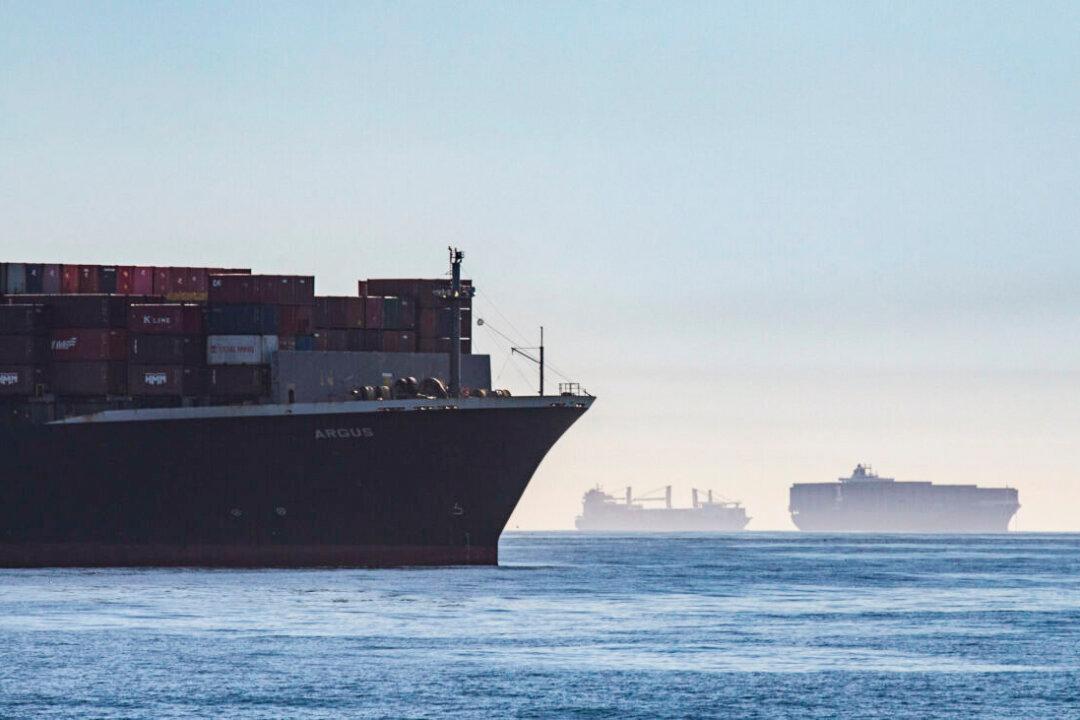The backlog of container ships at ports along Southern California’s coast has reached record highs despite the Biden administration’s push last month to get goods moving 24 hours a day, according to recent data.
The supply-chain bottlenecks show little sign of easing, according to data from the Marine Exchange released Tuesday, which reveal that there are now a total of 111 container vessels waiting outside the twin ports of Los Angeles and Long Beach.





